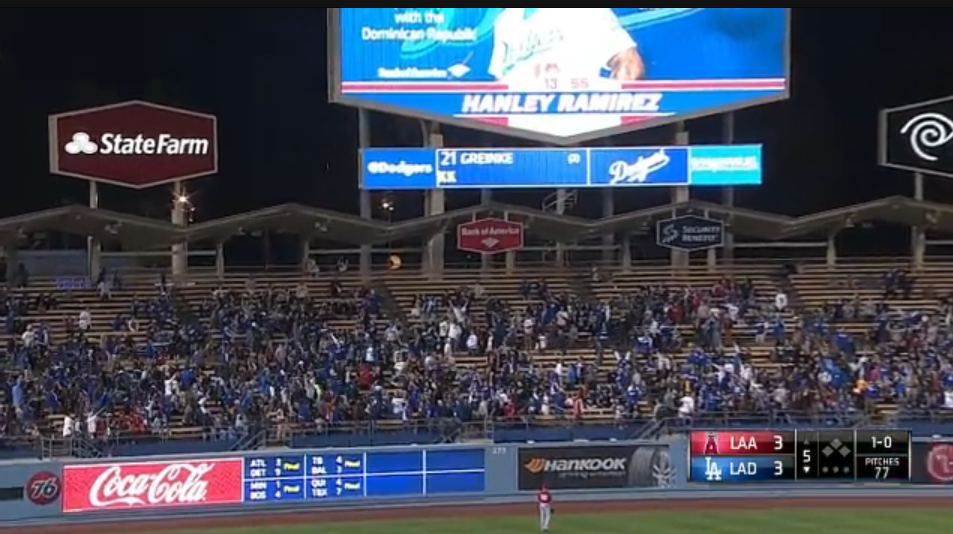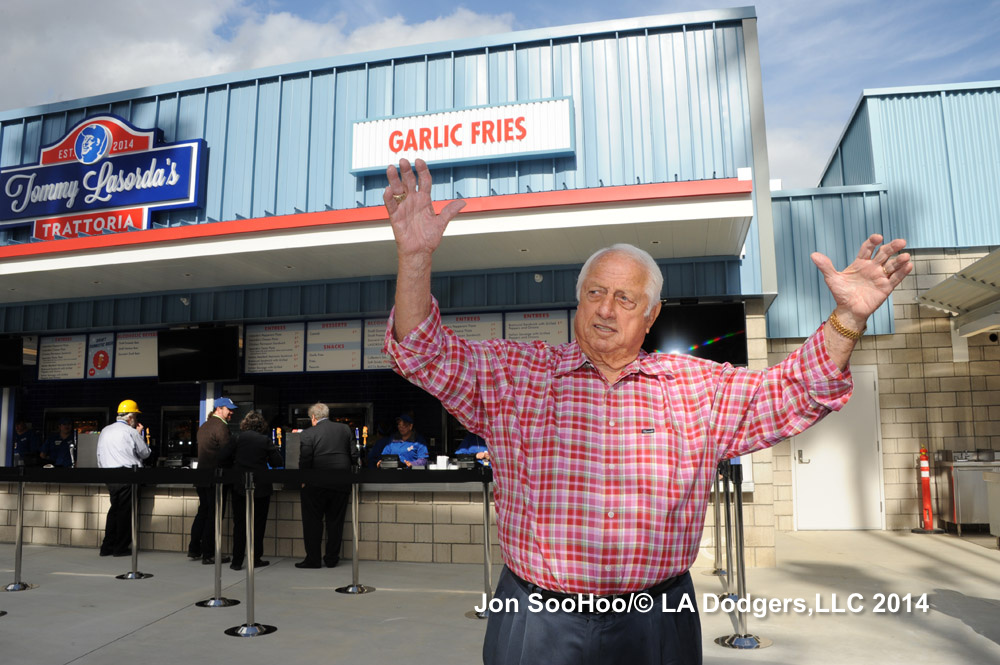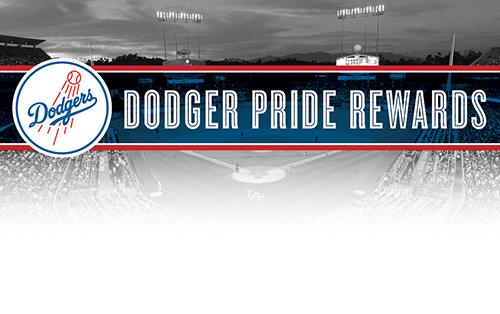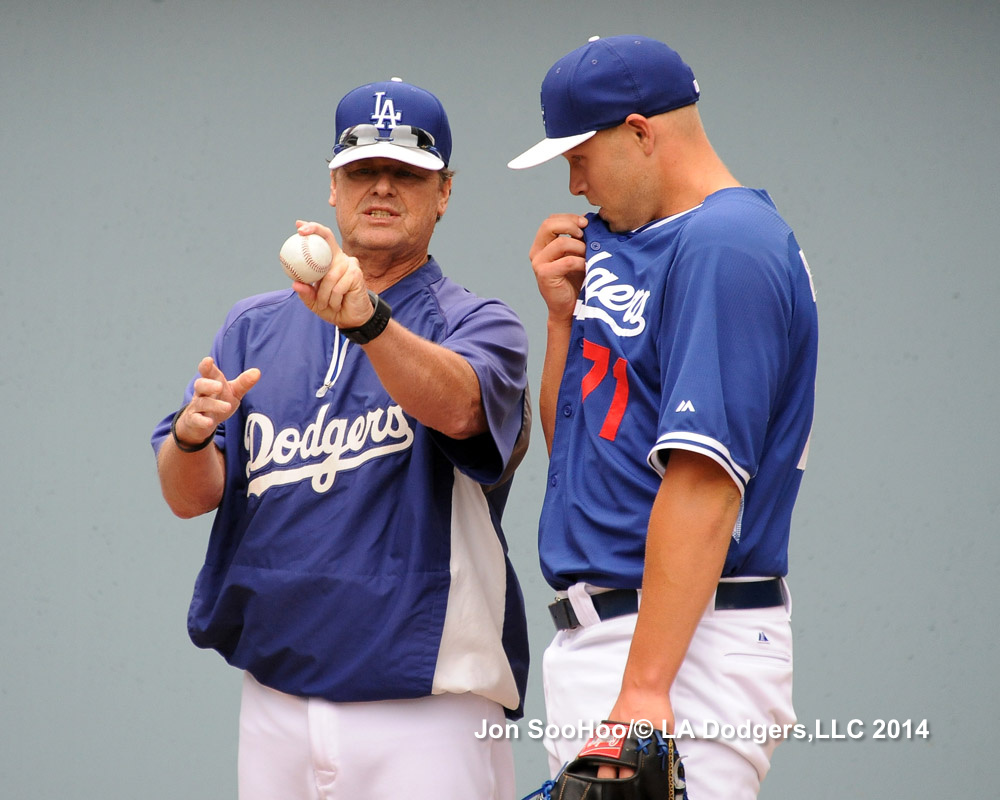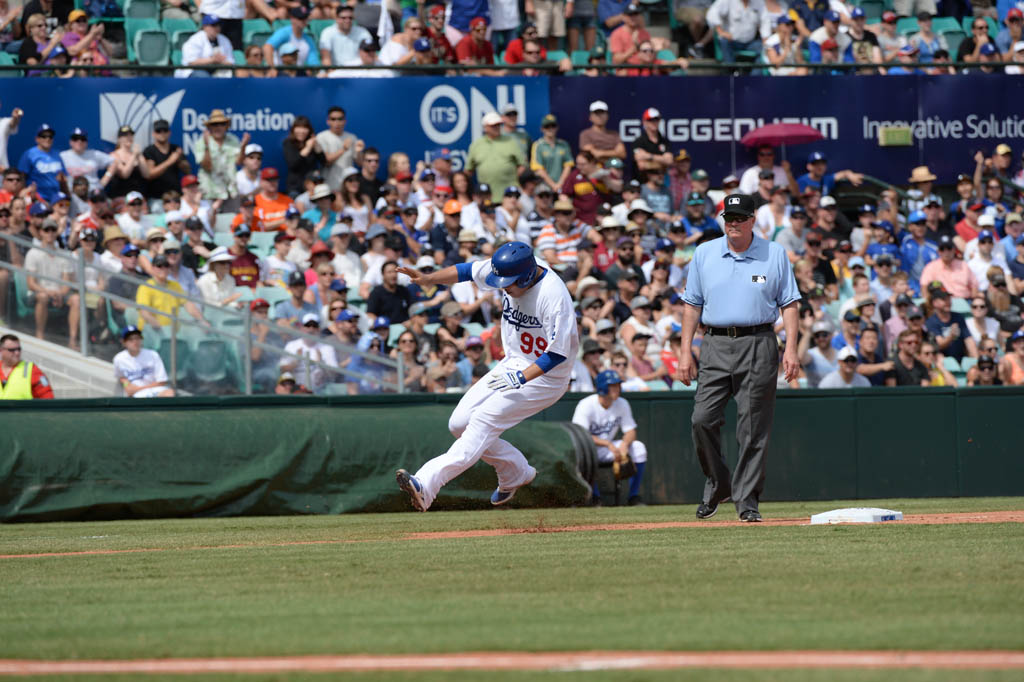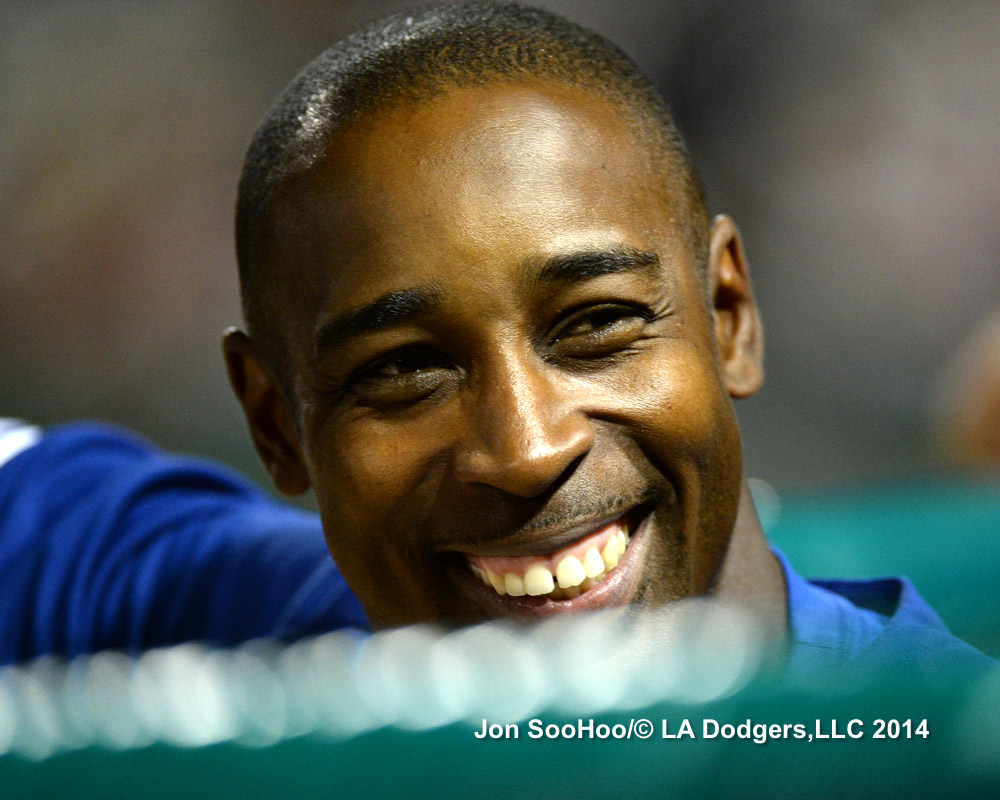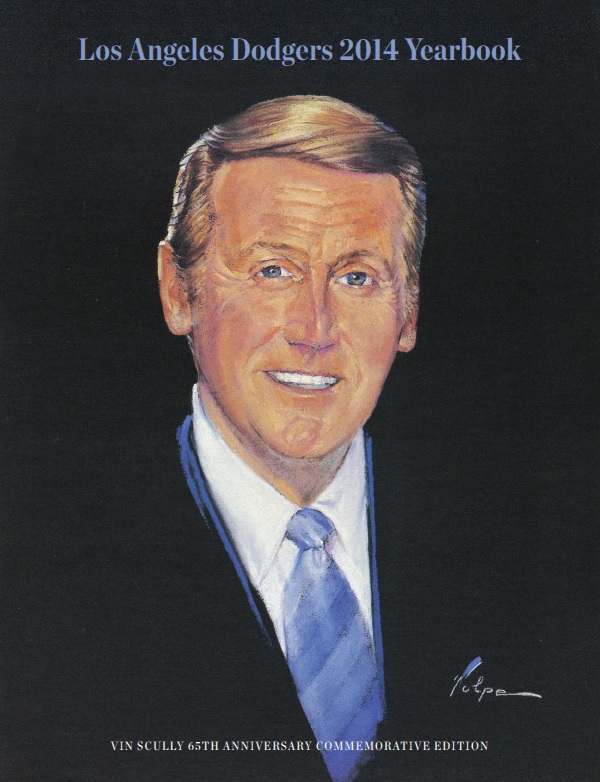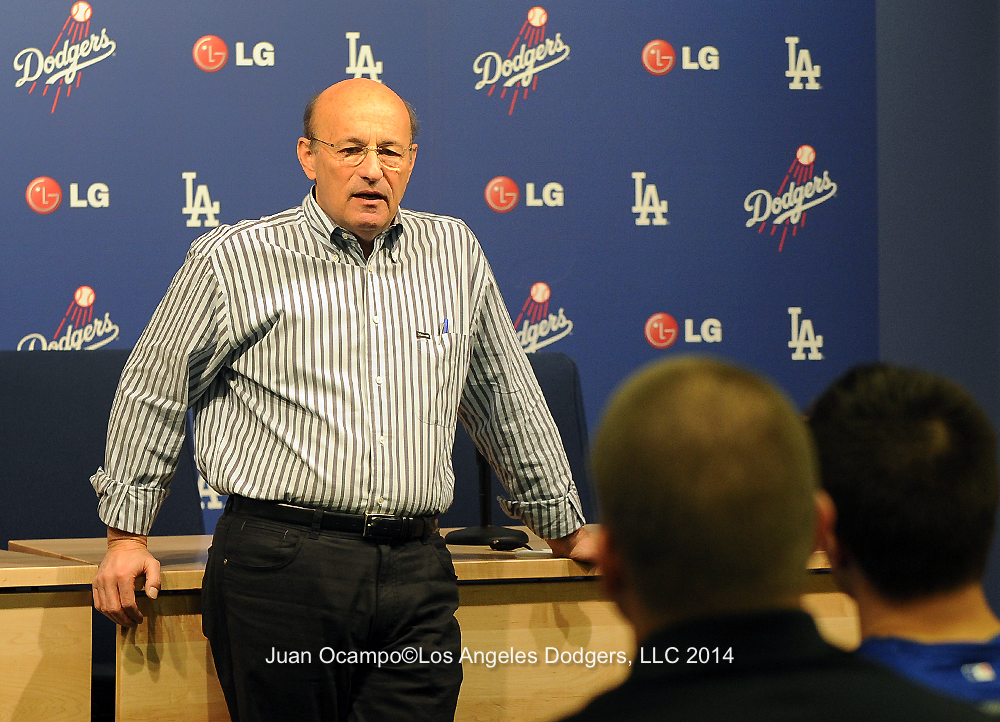
Dodger president and CEO Stan Kasten addressing participants at the Dodgers’ Winter Development Program in January.
By Jon Weisman
While saying that he expected the start of the Major League season in the U.S. to be a catalyst for holdout distributors to carry SportsNet LA, the 24/7 network dedicated to the Dodgers, team president and CEO Stan Kasten didn’t shrug off the fact that deals had yet to be completed.
“I am disappointed that deals haven’t been closed yet,” Kasten told a small group of reporters before Thursday’s Freeway Series game against the Angels, the first game at Dodger Stadium in 2014. “I also have to tell you that with the first regular season game (to be broadcast by SportsNet LA) coming on Tuesday, I am now concerned that some fans are not going to be able to see games. And that’s disappointing and shouldn’t be happening.”
Kasten reiterated the suggestion for fans to keep calling their providers to tell them that they want SportsNet LA and that without it, they would switch to a provider who would carry the network. But he again held out hope that with continuous fan support there would be movement – because ultimately every carrier has reason to want SportsNet LA to meet the demand.
“I just wish they would hurry up and get them done,” he said.
Though Time Warner Cable’s reported asking price for carriage of SportsNet LA has become a talking point in the media, Kasten said that it has been exaggerated.
“This is not about price,” Kasten said. “The price is consistent with the marketplace. In fact, to be blunt, some of these (distributors), and they know who they are, are already, on their own systems, paying more than the price that’s out there to teams in smaller markets. That’s the truth. So this isn’t about price, it’s about the game of negotiation. And it’s disappointing.
“Those same providers have done deals at higher prices, for bigger packages, than has been offered to them right now.”
Kasten found other aspects of the public posturing by potential distributors to be “disingenuous,” such as the suggestion that SportsNet LA should be offered “a la carte,” along the lines of a pricy individual pay channel such as HBO, rather than to all of a distributor’s customers the way an ESPN is.
“All these providers know there is not another team in all of baseball whose games are a la carte, anywhere,” Kasten said, “including, interestingly enough, on the cable systems owned by these same providers.”
“The other thing that’s particularly irritating in terms of disingenuous rhetoric is when someone tries to say, ‘Well, we’re not really seeing the demand for Dodger games.’ OK, that doesn’t pass the laugh test.”
Kasten had noted earlier than the evening that the Dodgers would reach 3 million in ticket sales before the April 4 home opener, the earliest date in franchise history.
“We have the highest number of season tickets we’ve ever had — it is the highest in all of Major League Baseball,” Kasten added. “Last year, our TV rating went up by 40%. So come up with some other excuse, because the reality is that in the history of this franchise, it is likely that right now, it’s the greatest interest our team has ever had.”
For Dodger fans understandably frustrated by the process, Kasten commented upon the importance of the deal to the organization being run as a big-market team and being able to do big-market things, from investment in players to the ongoing improvements at Dodger Stadium, none of which benefited from public funding.
“I don’t know what will happen here,” Kasten said. “I will say this — very few cities have a product this strong.”

